Several years ago a Native Ojibwa Elder had been coming to our Waldorf School and my class of twice a year sharing age appropriate stories, teachings and songs with the students. A class teacher in a Waldorf School stays with the same class from 1st through 8th grade and teaches the majority of lessons through those years.
The students and I had developed a warm relationship with this charismatic and kind Elder since his beginning visit in first grade years. When we got to Sixth grade he invited us to camp for almost a week at his village that he (and others) had build on the Lac de Flambeau reservation in north Wisconsin. The class of about 20 students and I were there to experience the Ojibwa ways. During the days we were educated of the traditional village and ways of the natives. In the evening we went into the teaching lodge with our Ojibwa Elder. We would enter one by one through the East door, take tobacco with our left hand, sprinkle it on the fire as an offering before we sat down -boys on one side and girls on the other- completely quiet absorbed in reverence. No one was told to be silent or had to be reminded. We were simply wrapped in this Elder's presence of humility, receptive listening, and genuine integrity so deeply that it became us. It was as if holiness itself was present and pervaded us.
One evening, as he lit up his peace pipe and passed tobacco around for giving thanks, he spoke of the Rites of Passages and the responsibilities of these soon to be young adults sitting around him; their responsibilities as Keepers of the Fire, Keepers of the Heart and Keepers of Mother Earth. He told us that the way of the Ojibwa, Anishinabe people, was to always, always give thanks to the Great Spirit for life. He sang songs, drummed and told us stories that made us be filled with joy and veneration. We left the teaching lodge through the West door in the same reverential mood as we had entered through the East door, but this time a little more humble and in a cloak of awe.
The next morning, as I woke early looking out from my tent over the lake blanketed by a gentle mist, I heard loons call. I felt then that these calls, in a strange way, were connected to our evening lodge gatherings around the fire. Thankfulness visited me as an inner presence centered in the heart, where a felt palpable spaciousness unites 'the inner' and 'the outer'.
I enter this heart presence regularly through out the day. It has become a way of being -kind of being within Thankfulness - within the soul spirit Earth presence that is also us and is always here. It never goes away, it is us who leave this presence.
And as an outer gesture of this inner presence I place a tiny portion of food (a piece of bread for example) on a small platter before we sit down to eat as an affirmation that with the food we eat spiritual substances are assimilated as well.
Blessings on the Meal!
Whole Wheat Sourdough Bread
Bread made with sourdough is nutritious and delicious. Caring for the starter will make it stronger and last for a long time. In Denmark I had a mother-dough that was over 100 years old; passed down though generations. Sourdough bread keeps well for 6-10 days in a cool place. Store the bread in paper placed inside a plastic bag. Week old bread can be sliced, toasted or steamed before serving.
Mother Dough, the Starter
1 cup freshly ground whole wheat flour
1 cup water
6 x 1/4 cups water
6 x 1/4 cups whole wheat flour
Mix 1 cup flour and 1 cup water in a glass bowl or jar. Cover with a cotton cloth and put in a cool place or outside in a shaded area.
Everyday, for the next 6 days, transfer the mother dough to a new clean bowl or jar. Feed the starter with 1/4 cup water and 1/4 cup flour, cover with a cloth and return it to the cool place.
Keep at least a cup of the mother dough starter, in the refrigerator. Use a jar with a lid that allows it to breathe. If kept longer than one week, feed it again as described above, and put it back in the refrigerator.
The day before baking, feed the mother dough with enough flour and water to make 3 cups. Two cups are for the bread, and one cup is to keep for next bread-making. The mother dough is always kept separate from the bread dough, and fed whole-wheat flour and water every week.
Whole Wheat Sourdough Bread
3 cups mother dough or starter
1 3/4 cups of water
1 tablespoon sea salt
4-5 cups whole wheat flour or half unbleached white flour
Avocado or olive oil
Place 2 cups mother dough in a large mixing bowl. Place the remaining 1 cup in a pint size jar in the refrigerator for next bread making. Add water and salt to the 2 cups of starter in the bowl. Mix well with a wooden spoon.
Add flour a little at a time. Form a firm but moist, light dough, the consistency of an ear lobe. Too much flour will make the dough hard.
Cover with a moist cotton cloth and let rise in a warm place to double size, about 3 hours. The rising time may vary. Over-rising makes the bread sour.
Oil a bread pan with avocado or olive oil.
Moisten hands. Knead the dough gently for a few minutes. Place the dough in the bread pan. The dough should fill the pan about one-half to two-thirds. Let the dough rise again in a warm place, for 3 hours, or until double the size.
Bake the loaf at 350 degrees for 45 minutes. Let cool completely before slicing.
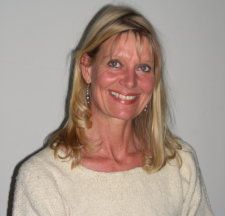
Anne-Marie Fryer Wiboltt is a Waldorf class and kindergarten teacher, biodynamic farmer, author and nutritional counselor. She has taught nutritional cooking and counseled for 25 years in her homeland Denmark, Europe and the United States.
She trained as a macrobiotic cooking teacher and counselor and studied the principles of oriental medicine and the research of Dr. Weston A. Price before embracing the anthroposophical approach to nutrition, food and cooking.
This Four week course will explore some of the many benefits of fermented and cultured foods,
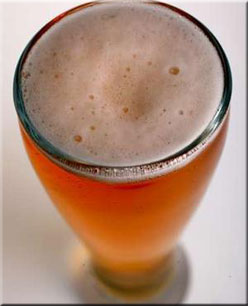
and why it is important to include them regularly with every meal. You will be guided through the steps of making sauerkraut, kimchi, pickled vegetables, kefir, soft cheese, and yogurt, as well as get a chance to discover new fermented drinks such as kvass, wines, and beers. I will aim at answering personal questions around your culturing and fermenting experiences.
Intuitively we know that cultured and fermented foods are real health foods. Naturally fermented and cultured foods are an exceptional way to prepare different ingredients and some of the most important side dishes and condiments in our diet. They are often overlooked or not mentioned when we describe what we had for dinner, and yet they are pivotal in creating a well-balanced, nutritious meal.
They add a bounty of nourishing, life-promoting substances and life forces, almost miraculous curative properties, and a wealth of colors, flavors, and shapes. They increase the appetite, stimulate the digestion, and make any simple meal festive and satisfying. The course will be highly practical with many hands-on activities.
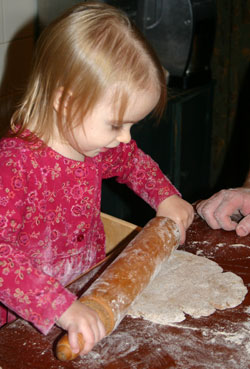
In this Four week course you will learn about the nutritional needs of your growing child and receive delicious, seasonal, wholesome nutritious menus and recipes on affordable budget so as to encourage children to eat and live healthy.
During this course we will explore the nutritious needs for your growing child.
We will discover how rhythm, simplicity and nourishing activities support a healthy child development. You will find new ways to encourage your child to develop a taste for natural, wholesome foods as well as receive and create delicious, seasonal nutritious menus and recipes that stay within the limits of your budget.
Cooking for the Love of the World:
Awakening our Spirituality through Cooking
by Anne-Marie Fryer Wiboltt
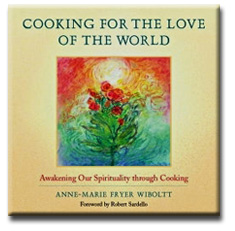
A heart-centered, warmth-filled guide to the nurturing art of cooking. 200 pages, softbound

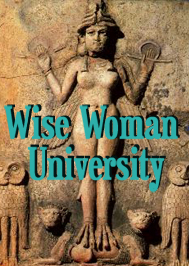 The Wise Woman University (WWU) is a sacred distance learning environment for the reweaving of the healing cloak of the Ancients.
The Wise Woman University (WWU) is a sacred distance learning environment for the reweaving of the healing cloak of the Ancients. Anne-Marie Fryer Wiboltt is a Waldorf class and kindergarten teacher, biodynamic farmer, author and nutritional counselor. She has taught nutritional cooking and counseled for 25 years in her homeland Denmark, Europe and the United States.
Anne-Marie Fryer Wiboltt is a Waldorf class and kindergarten teacher, biodynamic farmer, author and nutritional counselor. She has taught nutritional cooking and counseled for 25 years in her homeland Denmark, Europe and the United States. and why it is important to include them regularly with every meal. You will be guided through the steps of making sauerkraut, kimchi, pickled vegetables, kefir, soft cheese, and yogurt, as well as get a chance to discover new fermented drinks such as kvass, wines, and beers. I will aim at answering personal questions around your culturing and fermenting experiences.
and why it is important to include them regularly with every meal. You will be guided through the steps of making sauerkraut, kimchi, pickled vegetables, kefir, soft cheese, and yogurt, as well as get a chance to discover new fermented drinks such as kvass, wines, and beers. I will aim at answering personal questions around your culturing and fermenting experiences. In this Four week course you will learn about the nutritional needs of your growing child and receive delicious, seasonal, wholesome nutritious menus and recipes on affordable budget so as to encourage children to eat and live healthy.
In this Four week course you will learn about the nutritional needs of your growing child and receive delicious, seasonal, wholesome nutritious menus and recipes on affordable budget so as to encourage children to eat and live healthy.

